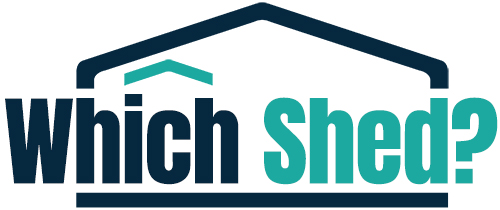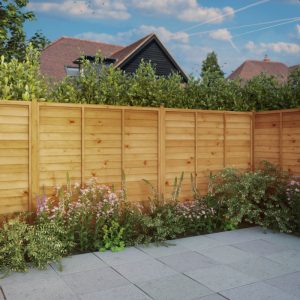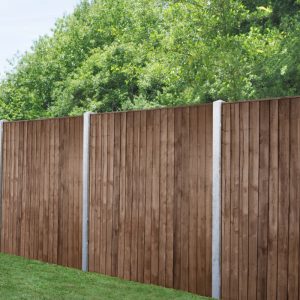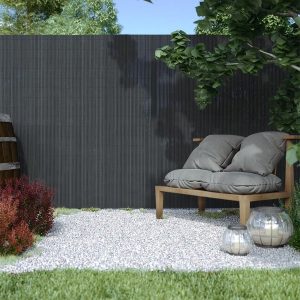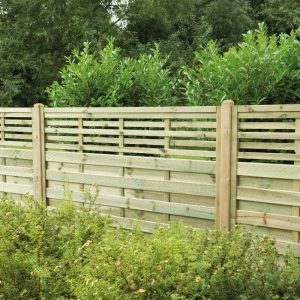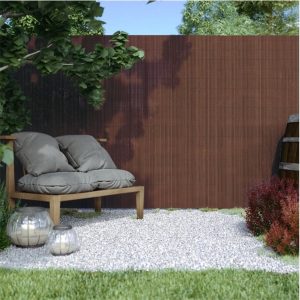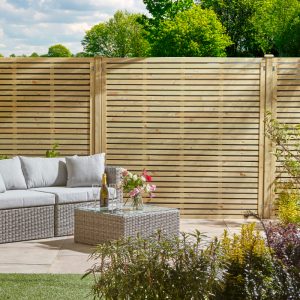Featuring a beautiful weave pattern, the 6′ x 6′ Fence Panel by Hartwood offers a premium aesthetic option compared to regular horizontal board fence panels. The horizontally aligned smooth-planed boards with grooved profiles are mounted on both sides of installation battens in an alternating arrangement. The panel boasts a robust rebated frame constructed with mortise and tenon joints, ensuring durability and longevity. This version with a height of 0.9m is perfect for establishing an appealing boundary marker at a lower level.
Crafted from sustainably sourced timber and treated with Dip Treatment to provide a 15-year Anti-Rot warranty, this panel does not require gravel boards for installation. For the best visual impact, pair this smooth-planed decorative panel with equally sleek fence posts.
Available in four different heights – 6ft (1.80m), 5ft (1.50m), 4ft (1.20m), and 3ft (0.90m).
